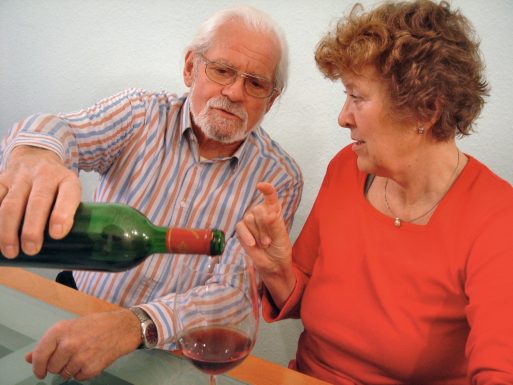
Alcohol and drug abuse is killing seniors.
Two new reports from the Centers for Disease Control show that drug and alcohol abuse are having an increasingly deadly impact on seniors in the United States, similar to their effect on youth. In 2020, more than 5,000 people aged 65 and older died of a drug overdose, with death rates more than tripling from 2.4 to 8.8 per 100,000 in the past two decades. Meanwhile, more than 11,000 deaths were induced by alcohol, at a rate that has been increasing since 2011 and rose more than 18% from 2019 to 2020.
Ellen Kramarow, an author of the reports and health statistician at the National Center for Health Statistics, told CNN via email that “it’s important to describe changes in these causes of death for all ages, including the older population.” While the report didn’t explore contributing factors, Kramarow added that “it’s not unreasonable to think that the forces affecting younger people also affect people 65 and older.” Both alcohol-related and drug overdose deaths spiked during the pandemic, in part due to stress.
Is Age a Factor?

Experts say seniors can’t metabolize drugs and alcohol at the same rate.
However, experts on not involved with the study offered some age-related explanations. Peter Hendricks, a professor of public health at the University of Alabama at Birmingham, noted that seniors are more physically affected by alcohol and drugs. “As we get older, the way that we metabolize drugs changes, and as a consequence, the effects of alcohol differ,” he told CNN. “For many people, what may have been a reasonable or moderate degree of alcohol consumption at some point in the past is now enough to result in significant intoxication or inebriation.”
Hendricks added that while alcohol-related deaths are typically more common around the holidays, including Christmas and New Year’s Eve. This spike could be driven more by an inability to process alcohol or suffering alcohol-related accidents than by holiday-induced loneliness.
Another contributing influence could be generational. Alexis Kuerbis, an associate professor at the Hunger College’s Silberman School of Social Work in New York, told CNBC that aging Baby Boomers often have different attitudes toward drugs and alcohol than previous generations, which may be contributing to increased consumption later in life.
Lori Ann Post, a professor of geriatric medicine at Northwestern University’s Feinberg School of Medicine, told CNN that ageism could be to blame for our inability to consider older adults among those at risk for a drug overdose, and pointed out that autopsies and toxicology reports are less commonly performed on seniors. “We need to eliminate the stigma so older adults can get treated,” she said.
The reports found that death rates from fentanyl and other synthetic opioids increased 53% from 2019 to 2020 among people aged 65 and older.

 Senior Deaths from Drug and Alcohol Abuse are Rising
Senior Deaths from Drug and Alcohol Abuse are Rising



 How to Comfort A Dying Loved One
How to Comfort A Dying Loved One
 Our Annual Seven Holiday Gifts for Someone Who Is Grieving, 2024 Edition
Our Annual Seven Holiday Gifts for Someone Who Is Grieving, 2024 Edition














